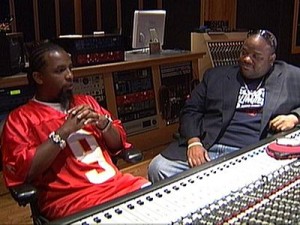Tech N9ne Mentioned In Jason Whitlock’s ‘The Explanation’
Aug 27 2010
 Jason Whitlock recently made shockwaves throughout sports media by announcing the end of his 16-year tenure at The Kansas City Star. Furthermore he made even more shockwaves by airing out his thoughts on 610 Sports Radio with Nick Wright. Entitled “The Explanation” (a play on Lebron James’ “The Decision”), Whitlock railed against his former boss at the Kansas City star and the culture in the news department. Ironically during this three-hour rant and Q&A session, Tech N9ne came about in conversation. Here’s a transcript from that section of the interview. Click here to listen to the podcast (second from the bottom, at the 24:51 mark they talk about Tech N9ne) or read below.
Jason Whitlock recently made shockwaves throughout sports media by announcing the end of his 16-year tenure at The Kansas City Star. Furthermore he made even more shockwaves by airing out his thoughts on 610 Sports Radio with Nick Wright. Entitled “The Explanation” (a play on Lebron James’ “The Decision”), Whitlock railed against his former boss at the Kansas City star and the culture in the news department. Ironically during this three-hour rant and Q&A session, Tech N9ne came about in conversation. Here’s a transcript from that section of the interview. Click here to listen to the podcast (second from the bottom, at the 24:51 mark they talk about Tech N9ne) or read below.
Nick Wright: Alright Jason, how do you reconcile your feelings about how damaging potentially rap music is with what I’d call an almost-obsessive pimping and friendship with Tech N9ne?
Jason Whitlock: Uh, Tech N9ne–particularly the music of Tech N9ne’s that I enjoy–Tech N9ne’s not a gangster rapper. I mean that’s your opinion but trust me, I know the guy, I listen to his music, I’ve been listening to it for a long time–he’s not a gangster rapper. He’s ludicrous for the most part with his dark side where he raps about his personal life, but the music that I like of Tech N9ne–”I’m a Playa”, “It’s Alive”, “This Ring”–many things…is just not gangster rap. Tech N9ne would tell you “I’m not a gangster rapper.”
Nick Wright: I can’t say this–this is in his second album, one of his most famous lines. He raps that. That’s not gang–that’s not over the top?Jason Whitlock: Of course. You can take almost any rap lyric and just write it down and say “that’s not over the top?” Of course you can. But if it’s in the context–and literally I don’t know what song you’re talking about–but if it’s in the context of a song and you say that–I don’t know. But every–trust me on this, Tech N9ne previous album K.O.D.–I didn’t buy it, because it’s a very dark album that I’ve never listened to because it’s crap that I won’t listen to. Take Anghellic, his album: I only listened to the last nine songs. I used to never listen to the first eight. He did a song about the abortions I think that he’s had with girls–I don’t wanna listen to that crap! But the party music, the stuff that makes me want to dance–I love it.
Nick Wright: The reason I ask is because you seem to have a discerning eye and a discerning taste with him. Maybe it’s because of the nature of the columns, but you seem to paint the rest of it with a very broad brush.
Jason Whitlock: Here’s what I’m saying Nick. You do know that McDonald’s is terrible, right? For you health-wise.
Nick Wright: Yeah.
Jason Whitlock: Horrible. I eat McDonald’s. I know it’s terrible for me.
Nick Wright: Yeah.
Jason Whitlock: So there are things–
Nick Wright: But you don’t write columns about how terrible fast food is and what it’s doing to ruin America!
Jason Whitlock: Because hip hop and athletics have a relationship. McDonald’s and athletics don’t really, and so there’s a way to thread my hip hop take into the sports world. If I kept writing political columns, I probably would’ve gotten to McDonald’s. But there are things that we all enjoy that we know are bad for us, and I can rip McDonald’s while sitting in the drive-thru, and I’m not wrong that McDonald’s is bad for you even as I’m consuming it, and I’m not wrong that someone raised like me, from my family structure, with my outlook on life–I can consume some rap music without it changing who I am. Some people can consume McDonald’s without getting as big as me. Some people consume rap music and it changes who they are in a negative way. Rap music is bad…overall. It’s made the N-word so popular in America, you have black people who think there’s nothing wrong with the N-word and nothing wrong with using the N-word. Rap music in many respects has been bad for the black community. Some things have been good about it but some things have been very very bad, painting a very negative image of us. When Oprah Winfrey goes over to Africa and someone says “hey what’s up my N-word?” I’m attributing that to rap music and hip hop music and the picture we’ve painted of ourselves with hip hop music.
What do you think of the dialogue? Is it fair to include Tech in this equation of young-black demise?
